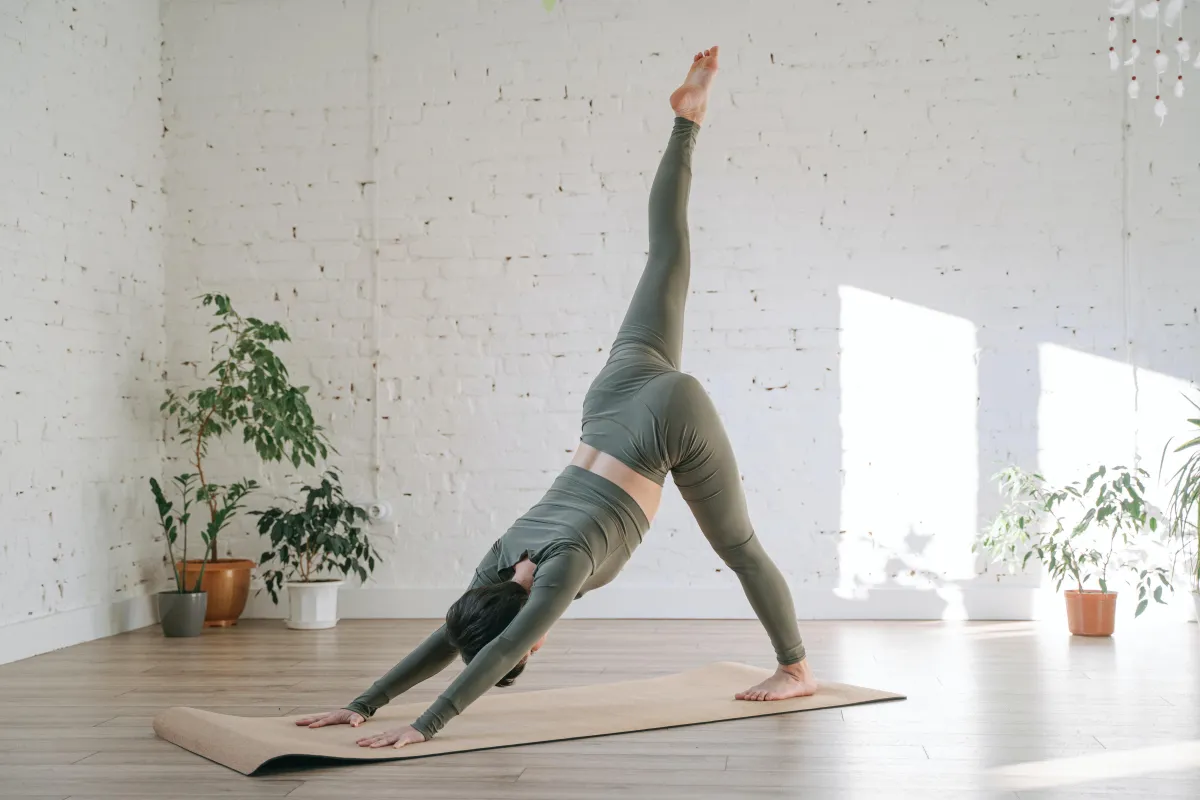OUR RECENT POSTS

The Connection Between Daily Movement and Mental Health
In today’s fast-paced world, mental health challenges are becoming increasingly common. While therapy, medication, and mindfulness practices are well-known methods to support mental health, one simple yet powerful tool often gets overlooked: daily movement. Whether it’s a brisk walk, yoga, or a more intense workout, physical activity profoundly impacts our mental well-being. Let’s explore the science behind this connection and how incorporating movement into your routine can improve your emotional and psychological health.
How Movement Impacts Mental Health
Releases Mood-Boosting Chemicals
Exercise triggers the release of endorphins, often called the “feel-good” hormones. These chemicals help reduce stress, boost mood, and create a sense of euphoria.Aerobic exercises like running or cycling are particularly effective in releasing endorphins.
Even short bursts of movement, like a 10-minute walk, can significantly uplift your mood.
Reduces Stress and Anxiety
Physical activity lowers cortisol, the body’s stress hormone, helping you feel calmer and more relaxed. Regular movement also reduces anxiety by improving your brain’s ability to respond to stress.Activities like yoga or tai chi combine movement with mindfulness, making them particularly effective for stress reduction.
Improves Sleep Quality
Daily movement promotes better sleep, which is crucial for mental health. Exercise helps regulate your body’s internal clock, making it easier to fall asleep and wake up feeling refreshed.Boosts Brain Function
Physical activity increases blood flow to the brain, enhancing cognitive function and focus. It also stimulates the production of brain-derived neurotrophic factor (BDNF), a protein that supports the growth of new neurons and helps combat depression.Builds Resilience
Engaging in regular movement can improve your ability to cope with life’s challenges. The discipline and consistency of sticking to an exercise routine can build a stronger sense of self-efficacy and resilience.
The Science Behind Movement and Mental Health
Numerous studies highlight the strong link between physical activity and improved mental health:
A 2020 meta-analysis found that regular exercise reduces symptoms of depression and anxiety across all age groups.
Research from Harvard Medical School shows that exercise can be as effective as antidepressants for some people, particularly in mild to moderate cases.
Movement stimulates the hippocampus and prefrontal cortex, areas of the brain responsible for memory, decision-making, and emotional regulation.
Types of Movement That Benefit Mental Health
Low-Intensity Activities
Perfect for beginners or those looking for a gentle way to improve mental health:Walking
Stretching
Light yoga
Moderate-Intensity Activities
Great for boosting endorphins and overall mood:Jogging
Cycling
Swimming
High-Intensity Activities
Effective for stress relief and mood elevation:Running
High-intensity interval training (HIIT)
Dance cardio
Mind-Body Exercises
Combines physical movement with mindfulness to reduce anxiety and stress:Yoga
Pilates
Tai chi
Social Activities
Movement with others enhances connection and reduces feelings of loneliness:Group fitness classes
Team sports
Walking or running clubs
Incorporating Movement Into Your Day
Adding daily movement doesn’t have to mean a rigid gym schedule. Here are some easy ways to get started:
Start Small
Take a 10-minute walk during your lunch break.
Stretch for 5 minutes in the morning to wake up your body.
Make It Fun
Dance to your favorite playlist.
Try a new activity like Zumba or paddleboarding.
Set Goals
Use a fitness tracker to aim for 8,000–10,000 steps a day.
Commit to 20 minutes of movement daily for a month.
Get Social
Join a fitness class or exercise with friends.
Make family outings active with hikes or bike rides.
Listen to Your Body
Choose activities that feel good and energize you.
Mix high-energy workouts with restorative practices like yoga.
Overcoming Barriers to Movement
If incorporating daily movement feels overwhelming, consider these tips:
Lack of Time: Opt for short, high-intensity workouts or integrate movement into daily tasks, like walking while taking calls.
Low Energy: Start with gentle exercises, such as stretching or slow walks, to gradually build your stamina.
Mental Hurdles: Remind yourself of the mental health benefits, and start with small, manageable steps to create a positive feedback loop.
The Ripple Effect of Daily Movement
Incorporating movement into your routine not only improves your mental health but also positively impacts other areas of your life:
Enhanced Relationships: A better mood leads to improved interactions with loved ones.
Increased Productivity: Reduced stress and better focus can make you more effective at work or school.
Greater Self-Confidence: Feeling stronger and more capable physically translates into a more confident mindset.
Daily movement is one of the most accessible and effective ways to support your mental health. Whether it’s a calming yoga session, a brisk walk in the park, or dancing in your living room, the key is finding activities that bring you joy and fit your lifestyle. Start small, stay consistent, and watch how regular movement transforms not only your body but also your mind and overall well-being.
Your mental health is worth every step. Keep moving, and keep thriving. 🌟
One or more of the links above are affiliate links, meaning, at no additional cost to you, we will earn a slight commission if you click through and make a purchase. Each of these products is chosen by a trusted member of our team.



Email: partnerships@beyondbluehealth.com
Site: www.beyondbluehealth.com
